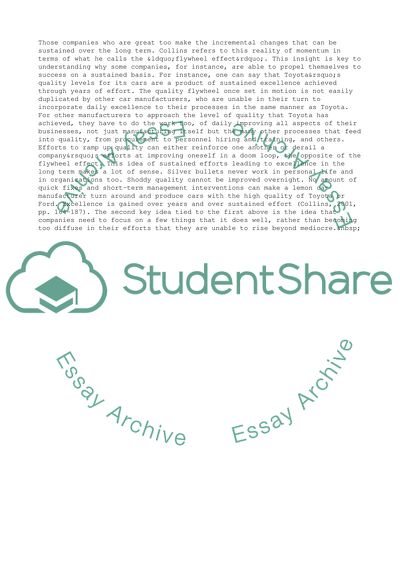Cite this document
(“Good to Great The Power of Habits Book Report/Review - 2”, n.d.)
Good to Great The Power of Habits Book Report/Review - 2. Retrieved from https://studentshare.org/business/1842128-analysis-paper
Good to Great The Power of Habits Book Report/Review - 2. Retrieved from https://studentshare.org/business/1842128-analysis-paper
(Good to Great The Power of Habits Book Report/Review - 2)
Good to Great The Power of Habits Book Report/Review - 2. https://studentshare.org/business/1842128-analysis-paper.
Good to Great The Power of Habits Book Report/Review - 2. https://studentshare.org/business/1842128-analysis-paper.
“Good to Great The Power of Habits Book Report/Review - 2”, n.d. https://studentshare.org/business/1842128-analysis-paper.


